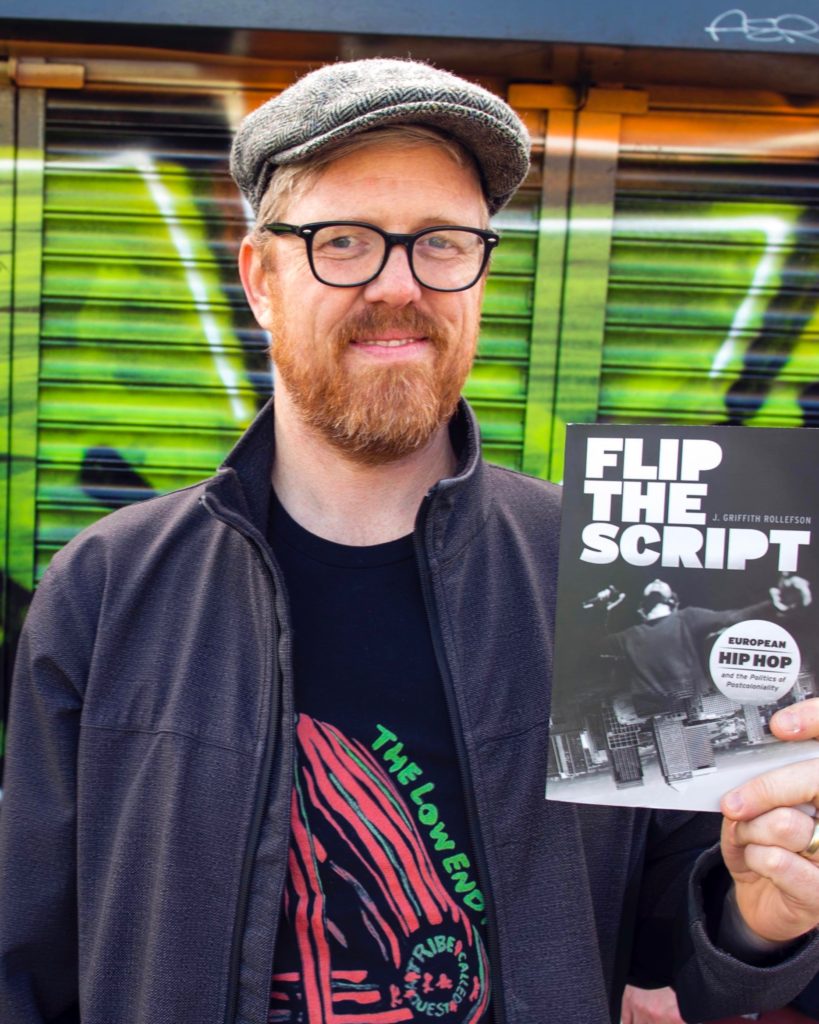“SOUL CRAFT”: THE INSTRUMENTALITY OF BAD BRAINS, H.R.’s THROAT, AND OTHER HUMAN RESOURCES

Abstract: The 1989 album, Quickness, by the influential Washington D.C. based hardcore-punk-reggae band, Bad Brains, begins with a vocal performance that both rehearses and prefigures the massive and distorted opening guitar riff. Famously, the lead singer/screamer/crooner/whiner/growler of the group, H.R., is listed not as singer or lyricist on the album notes, but simply as “throat.” This study works toward redressing the lack of black voices in punk scholarship (and punk voices in black music scholarship) by focusing on H.R.’s voice/throat/body as an instrument and an instrumentalising and embodied “Human Resource.” In so doing, it places sonic materiality as the focus of analysis, suggesting that H.R. and the other members of Bad Brains are engaging in musical forms of “Soul Craft”—the title of the opening track. That is, on this and the tracks that follow—“Voyage into Infinity,” “The Messengers,” and “With the Quickness”—Bad Brains craft musical vessels to convey their Rastafarian “overstanding.” Notably they do so through H.R.’s highly cultivated growls, squeals, and velvety-toned lyricism as much as through the band’s technical mastery of their instruments: ranging from virtuoso guitar solos and extended harmonies to mixed-meter drum hits, metric modulations, and the formal complexity of their songs.
This paper is part of a larger monograph project titled, The Big Pill: Enlightenment Binaries and Black Musical Metaphysics that investigates how black music is, in both idea and practice, a countermetaphysics of the West. Building on Paul Gilroy’s thesis that the black Atlantic is a “counterculture of modernity” and Dr. Funkenstein’s formulation, “They say the bigger the headache, the bigger the pill, baby / Call me the big pill,” this book considers black music as an alternative, restorative, and corrective to the Eurocentric regimes of rationality, empiricism, logocentrism, and their standard-bearer, white supremacy—a “technology of survival” (Mbembe).
Bio: J. Griffith Rollefson is Professor of Music at University College Cork, National University of Ireland. He is the author of Flip The Script: European Hip Hop and the Politics of Postcoloniality, winner of the Society for Ethnomusicology’s Ruth Stone Book Prize, Principal Investigator of the ERC global hip hop mapping initiative, CIPHER: Hip Hop Interpellation, and founding co-editor of the journal Global Hip Hop Studies (with Adam Haupt). The journal launches next month—stay tuned! His book Critical Excess: Watch the Throne and the Last Gilded Age is forthcoming in Spring 2021 from University of Michigan Press.

Hi Griff, I’ve no insightful comments or questions to add, I’m afraid, but wanted to let you know that I really enjoyed this paper. I’m looking forward to reading the book when it comes out!
Griff,
Excellent work and what an exciting new project! I love the range of artist/genres covered in particular, and as ever with your work, the sonics are central. I think there is a lot of mileage in the relationships between thoughts, metaphysics, knowledge (of self), their objectifications and the sonic performance of such ideas. When you mention a “metaphysics where we can begin to think of thoughts and things” (22:30), I wonder what you think about object-oriented ontology and if thought-as-thing could be bolstered further by such metaphysical philosophies? It doesn’t feel absent or anything (you don’t need it) but perhaps there is a case to be made that this case study shows how we don’t need o.o.o. when we have groups like Bad Brains to do that work for us instead.
Then again, with Graham Harmon telling us that aesthetics is the central discipline of philosophy, I do wonder how the two worlds intersect (and you are so good at fusing Derrida with Barthes with Gilroy and others). Wish I could be talking to you about this in the pub right now!
Take care,
Justin